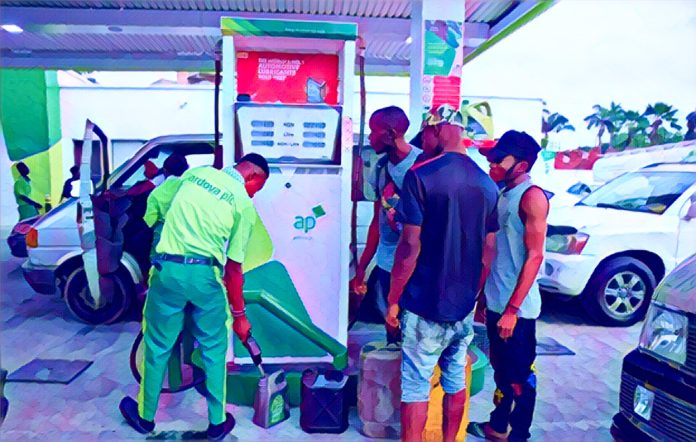Key Points
-
Nigerians to pay nearly N1 trillion more yearly under 15% fuel import tariff.
-
Government defends policy as support for local refining and revenue growth.
-
Industry groups warn of higher prices and inflation if rollout is poorly timed.
Nigerians may pay about N973.6 billion more each year for petrol after the federal government approved a 15 percent import tariff on Premium Motor Spirit.
A review of official import data by The PUNCH shows that Nigeria imported an average of 26.75 million litres of petrol daily between January and September 2025.
At a projected tariff rate of N99.72 per litre, the daily duty amounts to about N2.67 billion, translating to nearly N1 trillion annually.
The additional cost will likely push up pump prices once the policy takes effect. It will also raise transport and business expenses across the country, although the government expects higher revenue and stronger support for local refining.
Policy Approval and Rationale
President Bola Tinubu approved the tariff following a proposal by Federal Inland Revenue Service Chairman Zacch Adedeji.
The policy applies to petrol and diesel imports, based on their cost, insurance, and freight value.
In a memo to the president, Adedeji explained that the measure forms part of ongoing fiscal and energy reforms aimed at boosting revenue, stabilising prices, and supporting domestic refining under the administration’s Renewed Hope Agenda.
He also proposed a dedicated government revenue account to manage collections under the supervision of the Nigeria Revenue Service and the downstream regulatory authority.
Adedeji described the policy as a corrective step rather than a revenue-driven one. He said it seeks to prevent duty-free imports from undercutting local refiners now returning to operation.
“The goal is to strengthen local refining and maintain stable fuel supply without inflating prices beyond sustainable levels,” he wrote.
The tariff will take effect after a 30-day transition period ending November 21.
Industry Reactions
The Independent Petroleum Marketers Association of Nigeria warned that the new tariff could undermine market deregulation.
National Publicity Secretary Chinedu Ukadike said the policy risks favouring some industry players and discouraging private importers.
“Once you liberalise the market, any restriction or selective policy goes against the principle of free competition,” he said.
“Government should focus on incentivising local refineries instead of taxing imports.”
Ukadike argued that if local refining becomes cheaper, importers will naturally source products domestically.
He warned that any price increase could worsen inflation, especially ahead of the festive season.
“The most important element of market forces is a price drop,” he said. “Any addition to pump price will drive inflation, particularly with increased travel and fuel demand in December.”
Energy analyst Jeremiah Olatide described the tariff as a “double-edged policy.” He said it could help raise government revenue but would increase hardship for consumers still adjusting to high fuel prices after subsidy removal.
“It’s a smart way to generate income,” Olatide said. “But the timing is poor. Many Nigerians already pay N800 to N900 per litre. Adding a new tariff will worsen inflation.”
He also warned that a proposed five percent surcharge could add to the burden. “Multiple taxes will push prices up and distort the market,” he said.
Calls for Refinery Readiness
The Petroleum Products Retail Outlets Owners Association of Nigeria urged the government to ensure domestic refineries are operational before December.
President Billy Gillis-Harry said the policy could protect local refineries but warned that poor implementation might lead to scarcity.
“NNPC must complete its refinery partnerships before the festive period to avoid shortages or sharp price hikes,” he said.
Support for the Tariff
The Centre for the Promotion of Private Enterprise backed the tariff, calling it a strategic step to revive local industries and reduce import dependence.
Director Muda Yusuf said the measure represents “protection with purpose,” aimed at supporting domestic refiners like Dangote Refinery and the NNPCL plants.
He argued that protectionist policies have succeeded in sectors such as cement and beverages, where controlled competition encouraged investment and growth.
“Strategic protectionism is not about closing borders,” Yusuf said. “It’s about helping local producers build strength before competing globally.”
He added that the government must complement the tariff with low-interest financing, reliable energy, and better infrastructure to keep production costs manageable.
While opinions remain divided, analysts agree that Nigerians will face higher fuel costs unless domestic refining ramps up quickly to meet national demand.



